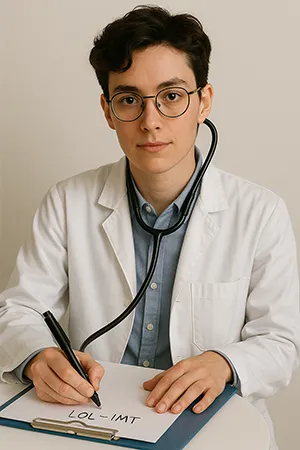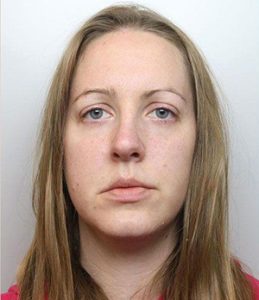Dr Leslie O’Looney , 2025-05-13 07:30:00
Welcome to this week’s issue of The Week in Medicine – a round-up of all the happenings in the world of Irish medicine
The abysmal management of our health service has come under the spotlight once again with a conference in Maynooth being told that Ireland is a decade away from having an electronic record for every patient. We were also told we could jump from the back of the queue to the front, but don’t hold your breath.
If that wasn’t bad enough, we were also told it will take €2 billion to build a new maternity hospital. It seems that we simply can’t do the normal things other countries do without it costing a fortune.
The Maynooth conference heard from the Director of the Digital Health Ecosystem, Prof Martin Curley that everyone should be provided with an electronic record on their phone, but it would take ten years to do so, if we wait for the current health service plan to be implemented. Unacceptable. Prof Curley pointed out that the tools to create such a system were in place, but what was missing was a national roll-out and full integration between hospitals.
Some hospitals have put in place electronic patient record, and some GP practices have electronic records, but there is no national system, or linkages between hospitals and general practice.

Dr Leslie O’Looney, as envisaged by AI
Until recently, patients here have had very limited direct online access to their personal health records. Ireland has been considered a laggard in this area – as of 2023 it was the only EU country without an online patient portal for health data. In practice, patients historically relied on paper printouts, letters, or requests to their healthcare providers to view their records, since there was no digital portal for them.
What this says about Ireland is two-fold. Our hospitals and Primary Care Centres are independent institutions or fiefdoms, and not linked up with the national health system. The government is too weak to make them deliver national goals. And secondly, the patient, and their right to manage their own healthcare is secondary in our system. The health system is there for doctors, nurses and managers, not patients, who come last, and have to ask for information about themselves and their health condition.
***************
Have you heard about the non-binary gold prospector?
They dug up a fortune in them/their hills
***************
It would be good advice for every healthcare professional to follow the Lucy Letby case closely. A briefing paper recently issued by doctors, journalists, mathematicians and other concerned individuals has concluded (yet again) that there are serious questions to answer. Moreover, they point to flaws within the British justice system that are every bit as prevalent within the Irish one.
First the facts as adduced by those experts in the case:
- Letby was convicted without direct eyewitness evidence of wrongdoing.
- The statistical analysis linking her presence to infant deaths was flawed, and a product of confirmation bias.
- Medical and scientific evidence was misrepresented, cherry-picked, or unreliable.
- Expert witnesses lacked credibility, with key prosecution witnesses offering unscientific or misleading testimony.
- Alternative medical explanations for the deaths were ignored.
This is frightening enough, but these experts also concluded that the British justice system is unable to try these cases fairly where a great deal of scientific knowledge needs to be understood. Also, the police and prosecution assumed guilt early, shaping the investigation around proving malfeasance, rather than a scientific inquiry into what happened.

Lucy Letby
Then there was the fact that the Crown Prosecution Service (CPS) ignored statistical concerns and failed to vet ‘expert’ witnesses. The judicial process itself lacked adequate scrutiny of scientific evidence, allowing unreliable testimony. A lead expert witness received serious judicial criticism, albeit the criticism was not upheld by the trial judge or the Appeal Court.
And then the appeal limitations and media restrictions suppressed alternative viewpoints and further scrutiny. The grounds for refusal of appeal in 2024 relied extensively on accepting the credentials of an expert witness that fall short of accepted guidelines. The scientific basis offered by the justices in support of allowing the evidence on air embolism does not exist in science or medicine, yet was allowed in law.
The paper highlights the broader risks of handling complex scientific cases within the UK justice system, warning of the risk of future miscarriages of justice. And there is no reason to believe that Irish courts would be any different. The briefing calls for an:
- Urgent Review of Letby’s Case by the Criminal Cases Review Commission (CCRC).
- Reform of UK legal procedures to handle scientific and medical evidence more rigorously.
- Greater oversight of expert witnesses and statistical evidence in criminal trials.
- Further investigation into hospital conditions and medical governance at the Countess of Cheshire Hospital.
Another piece of advice that has emerged from this debacle is to not write down your counselling notes. It turns out that the notes written by Letby – and relied on heavily by the CPS – were written during counselling sessions on the advice and encouragement of her counsellor. One was quoted repeatedly during the trial “I am evil, I did this” while another ‘Why me? I didn’t do anything wrong” was ignored.
Questions will remain in this case for years, maybe decades.
***************

The Irish Doctors’ Orchestra
The all-Ireland Irish Doctors’ Orchestra are set to perform an orchestral charity concert on Sunday, May 18 at Ad Astra Hall UCD. This group is an all-Ireland fellowship of medical professionals who are also classically trained musicians. This performance of over fifty healthcare professionals will generate much needed funds for St James’s Hospital Foundation, who will be supporting Arts and Health programmes at St James’s Hospital with the proceeds. These unique programmes are delivered by Creative Life at St James’s Hospital.